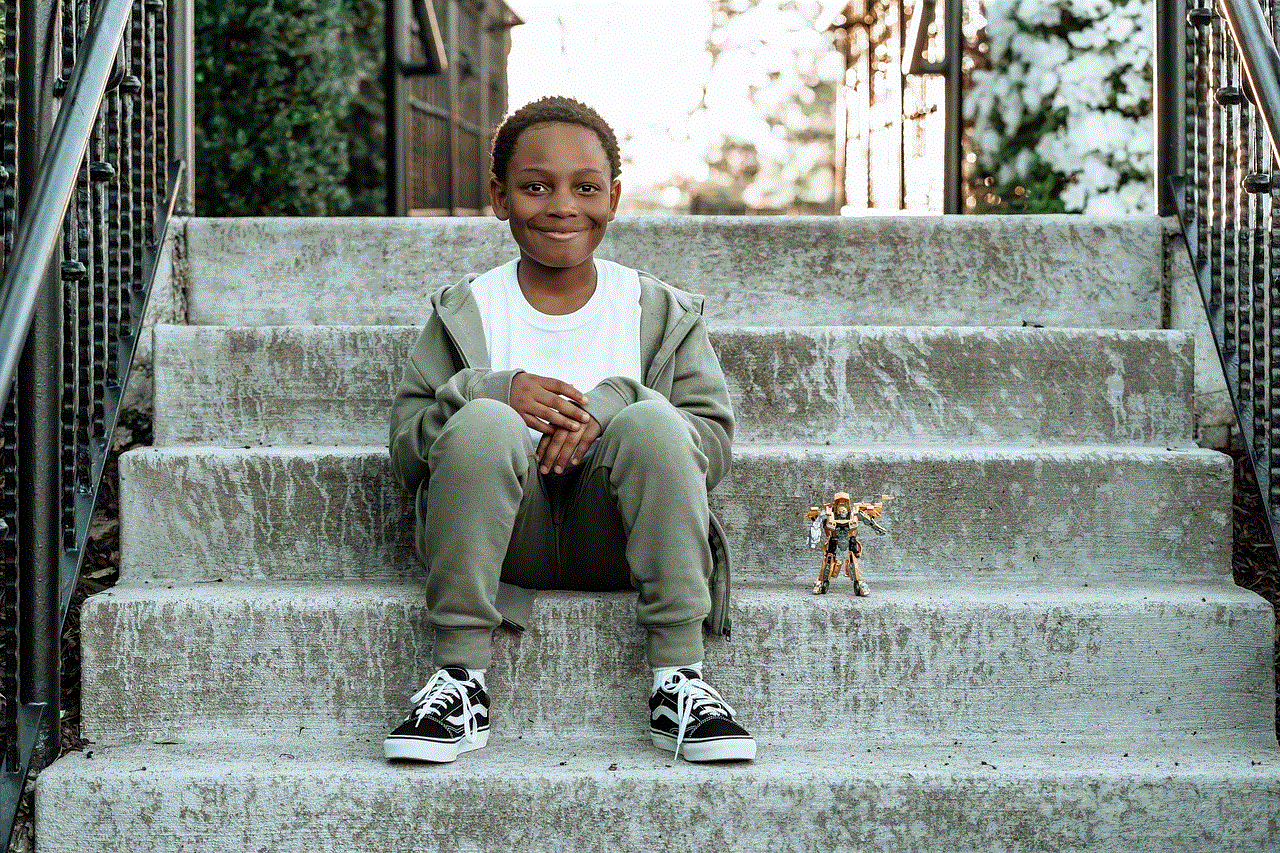if you watch porn at a young age then you
Title: The Impact of Early Exposure to Pornography on Youth Development
Introduction:
In today’s digital age, access to explicit content, including pornography, has become increasingly prevalent and accessible. The age at which young individuals are exposed to pornographic materials has significantly decreased, leading to concerns about its potential impact on their development. This article aims to explore the effects of early exposure to pornography, discussing its potential consequences on psychological, social, and sexual aspects of youth development.
1. Defining Early Exposure to Pornography:
Early exposure to pornography refers to the consumption of explicit sexual content by individuals at a young age, typically before reaching puberty. This exposure can occur through various mediums, such as the internet, magazines, or even accidental encounters.
2. Psychological Consequences:
a) Increased risk of developing unrealistic expectations: Early exposure to pornography can distort young individuals’ perception of sex, leading to unrealistic expectations regarding body image, performance, and relationships.
b) Emotional and psychological distress: Viewing explicit content at a young age can induce guilt, shame, anxiety, and confusion, affecting mental well-being and self-esteem.
c) Desensitization to sexual content: Frequent exposure to graphic sexual content can desensitize young individuals, potentially leading to diminished sexual satisfaction later in life.
3. Social Consequences:
a) Impact on interpersonal relationships: Early exposure to pornography may negatively influence the ability to form healthy and meaningful relationships, as it promotes objectification and unrealistic depictions of intimacy.
b) Increased risk of engaging in risky behaviors: Young individuals exposed to explicit content early on may be more likely to engage in risky sexual behaviors or develop unhealthy sexual habits.
4. Educational Consequences:
a) Distorted understanding of sex and relationships: Early exposure to pornography can hinder the ability to develop a comprehensive understanding of healthy relationships, consent, and communication.
b) Impaired academic performance: Consistent exposure to explicit content may lead to decreased focus and concentration, ultimately affecting academic performance.
5. Sexual Consequences:
a) Premature sexualization: Early exposure to pornography can accelerate the sexualization process, leading to the initiation of sexual activities at an inappropriate age.
b) Development of unhealthy sexual attitudes: Exposure to explicit content can contribute to the development of distorted attitudes towards sex, such as objectification, aggression, or violence.
c) Increased likelihood of engaging in risky sexual behaviors: Young individuals exposed to pornography may be more inclined to engage in unsafe sexual practices or experiment with potentially harmful activities.
6. Parental and Educational Interventions:
a) Open communication: Encouraging open and honest discussions about sexuality, relationships, and the potential risks associated with pornography can help mitigate the negative effects of early exposure.
b) Media literacy: Teaching young individuals critical thinking skills to analyze and evaluate media content, including pornography, can enhance their ability to distinguish fiction from reality.
c) Age-appropriate sexual education: Comprehensive sexual education programs at schools can provide accurate information about sex, relationships, and consent, helping to counteract the influence of explicit content.
7. The Role of Technology:
a) Parental controls and content filters: Implementing technological tools to restrict access to explicit content can act as a preventive measure.
b) Promoting responsible online behavior: Educating young individuals about responsible internet usage, including the potential risks associated with pornography, can help them make informed decisions.
Conclusion:
Early exposure to pornography can have profound and lasting effects on youth development. It is crucial for parents, educators, and society as a whole to address this issue by fostering open communication, implementing effective educational interventions, and utilizing appropriate technological measures. By doing so, we can work towards mitigating the potential negative consequences of early exposure to pornography and promoting healthy sexual development in young individuals.
child of a narcissistic father
The Impact of Growing Up as the Child of a Narcissistic Father
Introduction:
Growing up with a narcissistic father can have a profound impact on a child’s emotional, psychological, and interpersonal development. Narcissism is a personality disorder characterized by an inflated sense of self-importance, a constant need for admiration, and a lack of empathy towards others. When a child is raised by a narcissistic father, they often experience emotional neglect, manipulation, and a distorted sense of self-worth. In this article, we will explore the various effects of growing up as the child of a narcissistic father, including low self-esteem, difficulties in forming healthy relationships, and the potential for perpetuating narcissistic behaviors.
1. Emotional Neglect:
One of the most significant effects of growing up with a narcissistic father is emotional neglect. Narcissistic fathers are often so focused on their own needs and desires that they fail to meet their children’s emotional needs. These children may feel ignored, dismissed, or invalidated when expressing their emotions. As a result, they may struggle with emotional regulation, have difficulties identifying and expressing their feelings, and may develop a deep-seated fear of abandonment.
2. Low Self-Esteem:
Children of narcissistic fathers often develop low self-esteem due to constant criticism and invalidation. Narcissistic fathers may belittle their children’s accomplishments, compare them unfavorably to others, or constantly demand perfection. These experiences can lead to a distorted self-perception, feelings of inadequacy, and a constant need for external validation. These individuals may struggle to believe in their own abilities and may find it challenging to set healthy boundaries in relationships.
3. Co-Dependency:
Growing up with a narcissistic father can also lead to the development of co-dependent behaviors. Co-dependency is a pattern of behavior where individuals prioritize the needs of others over their own, often at their own expense. Children of narcissistic fathers may learn to constantly seek approval and validation from others, leading to a reliance on external sources for self-worth. They may struggle with asserting their own needs and may find themselves attracted to relationships with narcissistic individuals, perpetuating a cycle of co-dependency.
4. Difficulty in Establishing Healthy Relationships:
Children of narcissistic fathers often struggle to establish and maintain healthy relationships. They may have a skewed understanding of what constitutes a healthy relationship, as they have grown up witnessing narcissistic behaviors. These individuals may find themselves attracted to narcissistic partners or friends, as they are familiar with this dynamic. Additionally, they may have difficulty setting boundaries, communicating their needs, and trusting others due to past experiences of manipulation and emotional abuse.
5. Fear of Abandonment:
Growing up with a narcissistic father can instill a deep fear of abandonment in children. Narcissistic fathers often prioritize their own needs over their children’s, leading to inconsistent emotional support and validation. This inconsistency can create a fear of being abandoned or rejected by others. As a result, these individuals may struggle with trust, cling to relationships even when unhealthy, and constantly seek reassurance from others.



6. People-Pleasing Behavior:
Children of narcissistic fathers often develop people-pleasing behaviors as a means to gain validation and approval. They may become hyper-vigilant to the needs and emotions of others, constantly trying to meet their expectations. This behavior can lead to a lack of authenticity, as these individuals may struggle to express their true thoughts and feelings. It can also contribute to feelings of resentment and frustration, as their own needs are consistently overshadowed by the needs of others.
7. Perfectionism and Performance Anxiety:
Narcissistic fathers often place a heavy emphasis on external achievements and success. As a result, children may develop perfectionistic tendencies and a fear of failure. They may believe that their worth is contingent upon their achievements and may experience intense anxiety when faced with the possibility of falling short. This perfectionistic mindset can lead to burnout, constant self-criticism, and a persistent feeling of never being good enough.
8. Emotional Manipulation:
Children of narcissistic fathers may become skilled at navigating emotional manipulation and mind games. Narcissistic fathers often use guilt, gaslighting, and emotional manipulation to control their children and maintain their sense of power. This can lead to confusion, self-doubt, and a constant questioning of one’s own reality. These individuals may struggle with trusting their own judgment and may find it challenging to differentiate between healthy and manipulative behaviors in future relationships.
9. Internalized Shame and Guilt:
Growing up with a narcissistic father can result in the internalization of shame and guilt. Children may blame themselves for their father’s narcissistic behaviors, believing that they are inherently flawed or unworthy of love and affection. These feelings of shame and guilt can persist into adulthood, impacting self-esteem, and hindering personal growth and happiness.
10. Breaking the Cycle:
While growing up with a narcissistic father can have significant negative impacts, it is possible to break the cycle and heal from these experiences. Seeking therapy, engaging in self-reflection, and learning healthy coping mechanisms can be instrumental in recovering from the effects of narcissistic parenting. Establishing boundaries, practicing self-care, and surrounding oneself with healthy relationships can also contribute to personal growth and healing.
Conclusion:
Growing up with a narcissistic father can have a lasting impact on a child’s emotional and psychological well-being. Emotional neglect, low self-esteem, difficulties in forming healthy relationships, and the perpetuation of narcissistic behaviors are just some of the effects that children may experience. However, with awareness, support, and a commitment to personal growth, individuals can break free from these patterns and create a healthier, more fulfilling life. It is essential to remember that the experiences of growing up with a narcissistic father do not define one’s worth or potential for happiness.
watches for 12 year olds
Title: The Best Watches for 12-Year-Olds: A Comprehensive Guide
Introduction:
Watches can be a fantastic accessory for 12-year-olds, not only serving as a functional timepiece but also as a stylish statement. As children transition into their teenage years, owning a watch can help them develop a sense of responsibility and time management skills. However, finding the perfect watch for a 12-year-old can be a daunting task, considering their unique tastes and preferences. In this article, we will explore a variety of watches suitable for 12-year-olds, taking into account their durability, functionality, style, and affordability.
1. The Importance of a Watch for 12-Year-Olds:
Before delving into the different watch options available, it is essential to understand why a watch is a valuable possession for a 12-year-old. Firstly, a watch provides children with a sense of independence and responsibility, as they learn to manage their time effectively. It also encourages punctuality and organization, helping them stay on track during school, extracurricular activities, and social events. Moreover, wearing a watch can enhance their personal style and boost their confidence.
2. Durability and Water Resistance:



When selecting a watch for a 12-year-old, durability is paramount. Children tend to be active and engage in various physical activities, so a watch that can withstand daily wear and tear is essential. Look for watches made from robust materials such as stainless steel or durable plastic. Additionally, consider choosing a watch with water resistance, allowing them to wear it during water-related activities without worry.
3. Analog or Digital:
The choice between an analog or digital watch depends on personal preference and the level of convenience desired. Analog watches have a classic appeal and can help children learn to read time using traditional hour, minute, and second hands. On the other hand, digital watches are often equipped with additional features like timers, alarms, and backlighting, which can be beneficial for practicality and ease of use.
4. Features and Functionality:
When looking for a watch for a 12-year-old, it is important to consider the features and functionality that would be most useful. Some watches offer additional features such as a stopwatch, countdown timer, or date display. These features can be helpful for children involved in sports or other time-sensitive activities. However, ensure that the watch is not overly complex, as simplicity is key for a smooth user experience.
5. Style and Design:
As 12-year-olds develop their own unique style, they often gravitate towards watches that reflect their personality. Consider their preferences when it comes to colors, patterns, and themes. Many brands offer watches with popular characters, sports themes, or vibrant designs that cater to the interests of this age group. Encourage them to express themselves through their watch choice while ensuring it aligns with their overall style.
6. Strap Options:
The strap of a watch is an essential aspect to consider. For 12-year-olds, a comfortable and adjustable strap is vital, as it allows them to wear the watch securely and without discomfort. Opt for straps made from materials like silicone or nylon, as they are flexible, easy to clean, and less likely to cause allergies. Additionally, look for watches with adjustable bands to accommodate different wrist sizes.
7. Brand Reliability and Warranty:
When purchasing a watch for a 12-year-old, it is advisable to choose a reputable brand known for producing reliable timepieces. Well-established brands often offer warranties, ensuring that any manufacturing defects or malfunctions will be addressed promptly. This is particularly important when investing in a more expensive timepiece that may be passed down through generations.
8. Budget-Friendly Options:
Finding a watch that meets all the necessary criteria while remaining within budget can be challenging. However, many brands offer affordable options without compromising quality. Look for watches that strike a balance between durability, functionality, and style while being reasonably priced. Online marketplaces often provide a wide range of options, allowing for easy comparison and selection.
9. Parental Involvement and Guidance:
When it comes to purchasing a watch for a 12-year-old, it is essential for parents or guardians to be involved in the decision-making process. Discuss their preferences, guide them towards suitable options, and consider the intended use of the watch. Parents can also take this opportunity to teach their children about the value of money and the importance of taking care of their possessions.



10. Final Thoughts:
Choosing the perfect watch for a 12-year-old can be exciting yet challenging. By considering factors such as durability, water resistance, style, and functionality, parents can find a watch that suits their child’s individual needs and preferences. A well-chosen watch can serve as a valuable accessory, aiding in time management, personal style development, and fostering a sense of responsibility. So, take the time to research, compare, and find the watch that will accompany your 12-year-old on their journey through adolescence.